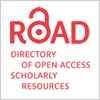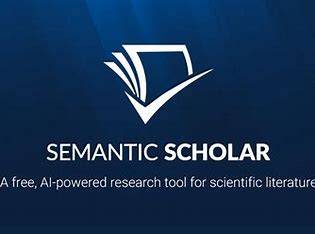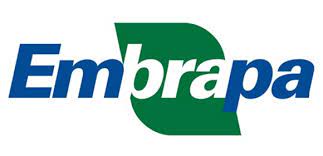PEDAGOGICAL ALTERNATIVES FOR TRAINING HEALTH PROFESSIONALS ABOUT ONCOLOGY: INTEGRATIVE REVIEW
DOI:
https://doi.org/10.47820/recima21.v4i5.3085Keywords:
qualification of oncological care requires training of health professionalsAbstract
The qualification of oncological care requires training of health professionals, so that they can meet the different and complex needs of this clientele. This study aimed to analyze the scientific literature on the teaching methods used in training for health professionals on the subject of Oncology. This is an integrative review, with a search for primary studies, published in Portuguese, English and Spanish, without a time frame, available in full by digital access and approach to the study theme, in the LILACS, PubMed and SCOPUS databases, carried out in March 2022. Of the total of 793 articles surveyed in the databases, after the selection process applied with the inclusion and exclusion criteria, the final sample consisted of 17 scientific articles that were categorized into: pedagogical strategy: Continuing education and pedagogical strategy: Permanent education in health. It was observed that most studies sought to use teaching strategies that meet what is proposed by Permanent Education in health, due to its potential for a meaningful and transformative teaching-learning process. However, it was also observed that the main focus of the training on the oncological theme was the professionals of the hospital context, and the professionals of Primary Health Care also have an important role, together with cancer patients.
Downloads
References
Souza GRM., Cazola LHO, Oliveira SMVL. Work of Family health strategy nurses in oncology c are. Esc. Anna Nery, 2017;21(4):1-8.
Thuler LCS, Bergmann A, Ferreira SC. Ensino em Atenção Oncológica no Brasil: Carências e Oportunidades. Revista Brasileira de Cancerologia, 2011;57(4):467-472.
Rosa LM, Souza AIJ, Anders JC, Silva RN, Silva GS, Fontão MC. Demandas de Atendimento de Enfermagem e de Qualificação em Oncologia na Atenção Básica em Saúde. Cogitare Enferm.2017;22(4):1-9.
Cruz POl, Carvalho TB, Pinheiro LDP, Giovannini PE, Nascimento EGC, Fernandes TAAM. Percepção da Efetividade dos Métodos de Ensino Utilizados em um Curso de Medicina do Nordeste do Brasil. Revista Brasileira de Educação Médica, 2019;43(2), 40-47.
Maia CM, Furnival ACM. A atuação do bibliotecário no ensino de Competência Informacional com o uso de Metodologias Ativas de ensino aprendizagem: uma pesquisa bibliográfica. Revista Brasileira de Biblioteconomia e Documentação, 2020;16:1-30.
Mendes KDS, Silveira RCCP, Galvão CM. Revisão integrativa: método
de pesquisa para a incorporação de evidências na saúde e na enfermagem. Texto
Contexto Enferm., 2008;17(4):758-64.
Moher D, Liberati A, Tetzlaff J, Altman DG, Altman D, Antes G et al. The PRISMA Group. Preferred reporting items for systematic reviews and meta-analyses: the PRISMA statement for reporting systematic reviews and meta-analyses of studies that evaluate health care interventions: explanation and elaboration. J Clin Epidemiol. 2009;62(10):1006-1012.
Melnyk BM, Fineout-Overholt E. Making the case for evidence-based practice. In: Melnyk BM, Fineout-Overholt E. Evidence-based practice in nursing & healthcare. A guide to best practice. Philadelphia: Lippincot Williams &, 2011:3-24.
Braun LW, Martins MAT, Romanini J, Rados PV, Martins MD, Carrard VC. Continuing education activities improve dentists’ self-efficacy to manage oral mucosal lesions and oral cancer. Eur J Dent Educ. 2021 Feb;25(1):28-34.
Harvey, A., Zhang, Y., Phillips, S., Suarez, R., Dekle, L., Villalobos, A., & Pratt-Chapman, ML (2020). Resultados iniciais de uma série de educação continuada on-line focada em cuidados de sobrevivência ao câncer pós-tratamento. Journal of cancer education: o jornal oficial da American Association for Cancer Education , 35 (1), 144–50.
Martina K, Ghadimi L, Incerol D. Development of a Workshop for Malignant
Hematology Nursing Education. Clin. J. Oncol. Nurs. 2016;20(1):98-101.
Gustafsson M, Borglin G. Can a theory-based educational intervention change nurses’ Knowledge and attitudes concerning cancer pain management? A quasi-experimental design. BMC, Health Services Research, 2013;13(328):1-11.
Ceber E, Turk M, Ciceklioglu M. The effects of an educational program on knowledge of breast cancer, early detection practices and health beliefs of nurses and midwives. J Clin Nurs. 2010 Aug;19(15-16):2363-71.
Turner J, Clavarino A, Butow P, Yates P, Hargraves M, Connors V, Hausmann S. Enhancing the capacity of oncology nurses to provide supportive care for parents with advanced cancer: evaluation of an educational intervention. Eur J Cancer. 2009 Jul;45(10):1798-806.
Brown RF, Bylund CL, Kline N, De La Cruz AMS, Solan JRN, Kelvin J. et al. Identifying and Responding to Depression in Adult Cancer Patients: Evaluating the Efficacy of a Pilot Communication Skills Training Program for Oncology Nurses. Cancer Nursing, 2009;32(3):p E1-E7, May 2009.
Rask MT, Jensen ML, Andersen J, Zachariae R. Effects of an intervention aimed at improving nurse-patient communication in an oncology outpatient clinic. Cancer Nurs. 2009;32(1):E1-11.
Knowles G, Hutchison C, Smith G, Philp ID, McCormick K, Preston E. Implementation and evaluation of a pilot education programme in colorectal cancer management for nurses in Scotland. Nurse Educ Today. 2008 Jan;28(1):15-23.
Carvalho TP, et al. Tracheostomized patients care: efficacy of a brief theoretical education program for nursing personnel. Support Care Cancer, 2009;17(6):749-51, 2009.
Delvaux N, Razavi D, Marchal S, Brédart A, Farvacques C, Slachmuylder JL. Effects of a 105 hours psychological training program on attitudes, communication skills and occupational stress in oncology: a randomised study. Br J Cancer. 2004 Jan 12;90(1):106-14.
Ger LP, Chang CY, Ho ST, Lee MC, Chiang HH, Chao CS, Lai KH, Huang JM, Wang SC. Effects of a continuing education program on nurses' practices of cancer pain assessment and their acceptance of patients' pain reports. J Pain Symptom Manage. 2004;27(1):61-71.
Hessig RE, Arcand LL, Frost MH. The effects of na educational intervention on oncology nurses’ atitude, perceived knowledge, and self-reported application of complementary therapies. Oncol Nurs Forum, 2004;31(1):71-8, 2004.
Masny A, Daly M, Ross E, Balshem A, Gillespie D, Weil S. A training course for oncology nurses in familial cancer risk assessment: evaluation of knowledge and practice. J Cancer Educ. 2003;18(1):20-25.
Dixon H, Hordern A, Borland R. The Breast Cancer Distance Education Program: development and evaluation of a course for specialist breast care nurses. Cancer Nurs. 2001;24(1):44-52.
Hellbom M, Brandberg Y, Kurland J, Arving C, Thalén-Lindström A, Glimelius B, Sjödén PO. Assessment and treatment of psychosocial problems in cancer patients: an exploratory study of a course for nurses. Patient Educ Couns. 2001;45(2):101-6.
McCormick LK, Mâsse LC, Cummings SS, Burke C. Evaluation of a skin cancer prevention module for nurses: change in knowledge, self-efficacy, and attitudes. Am J Health Promot. 1999 May-Jun;13(5):282-9.
Silva DSJR, Duarte LR. Educação permanente em saúde. Revista Da Faculdade De Ciências Médicas De Sorocaba, 2015;17(2), 104–105.
Signor E, Silva LAA, Gomes IEM, Ribeiro RV, Kessler M, Weiller TH, Peserico A. Educação permanente em saúde: desafios para a gestão em saúde pública. Rev Enferm UFSM 2015;5(1):01-11.
Viana DM., Nogueira CA, Araújo RS, Vieira RM, Rennó HMS, Oliveira VC. A educação permanente em saúde na perspectiva do enfermeiro na estratégia de saúde da família. R. Enferm. Cent. O. Min., v. 5, n.2, p. 1658-1668, 2015.
Sena RR, Grillo MJC, Pereira LA, Belga SMMF, França BD, Freitas CP. Educação Permanente nos serviços de saúde: atividades educativas desenvolvidas no estado de Minas Gerais, Brasil. Revista Gaúcha de Enfermagem, 2017;38(2):e64031.
Polit DF, Beck CT. Fundamentos de Pesquisa em Enfermagem: Avaliação
de Evidências para a Prática da Enfermagem. Artmed. Edição do Kindle, 2019.
Merhy EE. O desafio que a educação permanente tem em si: a pedagogia da
implicação. Interface, 2005;9(16):172-174.
Ceccim RB. Educação permanente em saúde: descentralização e disseminação
de capacidade pedagógica na saúde. Ciência & Saúde Coletiva, 2005;10(4):975-86.
Pautasso FF, Zelmanowicz AM, Flores CD, Caregnato RCA. Atuação do Nurse Navigator: revisão integrativa. Rev. Gaúcha Enferm., 2018,39(e2017-0102):1-10.
Centro para o Avanço da Educação Interprofissional (CAIPE). Interprofessional education – a definition. Londres, 2002. Disponível em: https://www.caipe. org/resources/publications/caipe-publications/caipe-2002- interprofessional-education-today-yesterdaytomorrow-barr-h. Acesso em: 15 fev. 2023.
Forte FDS, Morais HGF, Rodrigues SAG, Santos JS, Olivera PFA, Morais MST, Lira TEBG, Carvalho MFM. Educação Interprofissional e o Programa de Educação pelo Trabalho para Saúde/Rede Cegonha: potencializando mudanças na formação acadêmica. Interface comun. saúde educ., 2016;20(58):798-796.
COSTA MV. A Educação Interprofissional no contexto brasileiro: algumas reflexões. Interface comun. saúde educ., 2016;20(56):197-198.
Downloads
Published
How to Cite
Issue
Section
Categories
License
Copyright (c) 2023 RECIMA21 - Revista Científica Multidisciplinar - ISSN 2675-6218

This work is licensed under a Creative Commons Attribution 4.0 International License.
Os direitos autorais dos artigos/resenhas/TCCs publicados pertecem à revista RECIMA21, e seguem o padrão Creative Commons (CC BY 4.0), permitindo a cópia ou reprodução, desde que cite a fonte e respeite os direitos dos autores e contenham menção aos mesmos nos créditos. Toda e qualquer obra publicada na revista, seu conteúdo é de responsabilidade dos autores, cabendo a RECIMA21 apenas ser o veículo de divulgação, seguindo os padrões nacionais e internacionais de publicação.

 Clique para ver detalhes
Clique para ver detalhes 











